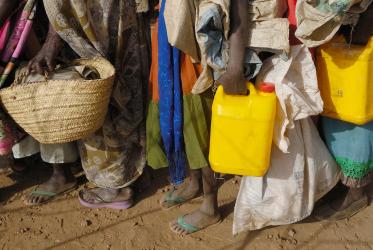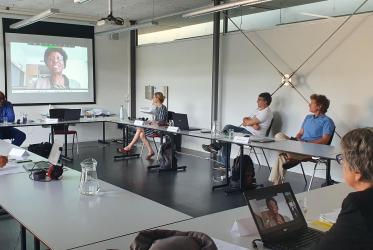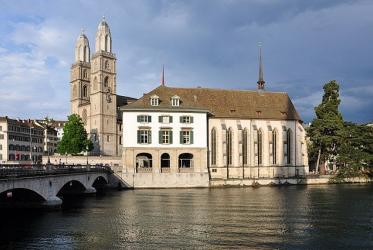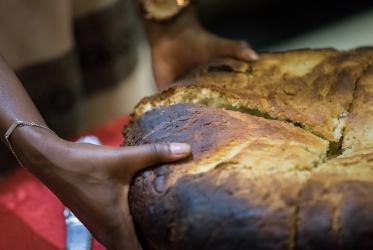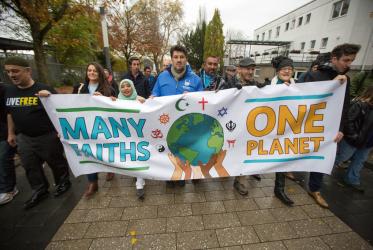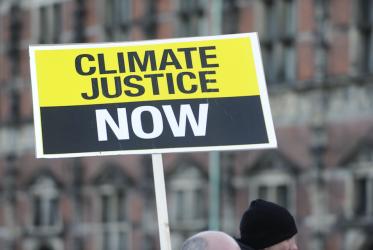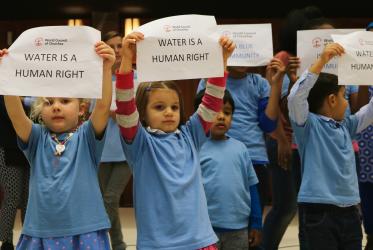Displaying 1 - 20 of 22
2022 Social Forum: Water for human rights and sustainable development
03 - 04 November 2022
Palais des Nations in Geneva, Switzerland
WCC’s Ecumenical Water Network attends Pilgrim Team Visit
30 August 2022
Faith communities vital in overcoming hunger
18 March 2020
COP 23 “debriefing” brings faith and ethical perspectives
23 January 2018
Ecumenical Patriarch visits WCC
24 April 2017
WCC Blue Community implements water changes in the Ecumenical Centre
16 February 2017
WCC participates in UN panel discussion on climate ethics
15 February 2017
WCC joins the Blue Community
25 October 2016
Visser’t Hooft Hall, Ecumenical Center, 150 Route de Ferney, Geneva
Tveit on the “Ten Commandments” of food
26 January 2016
Land rights focus of panel discussion
17 November 2015
Water network develops a theological framework for water justice
12 December 2014
